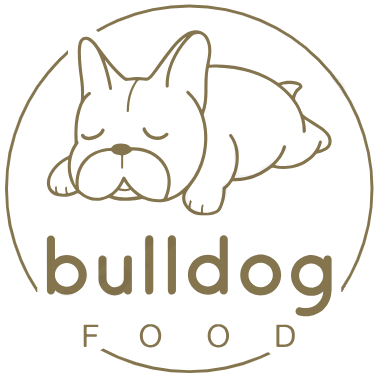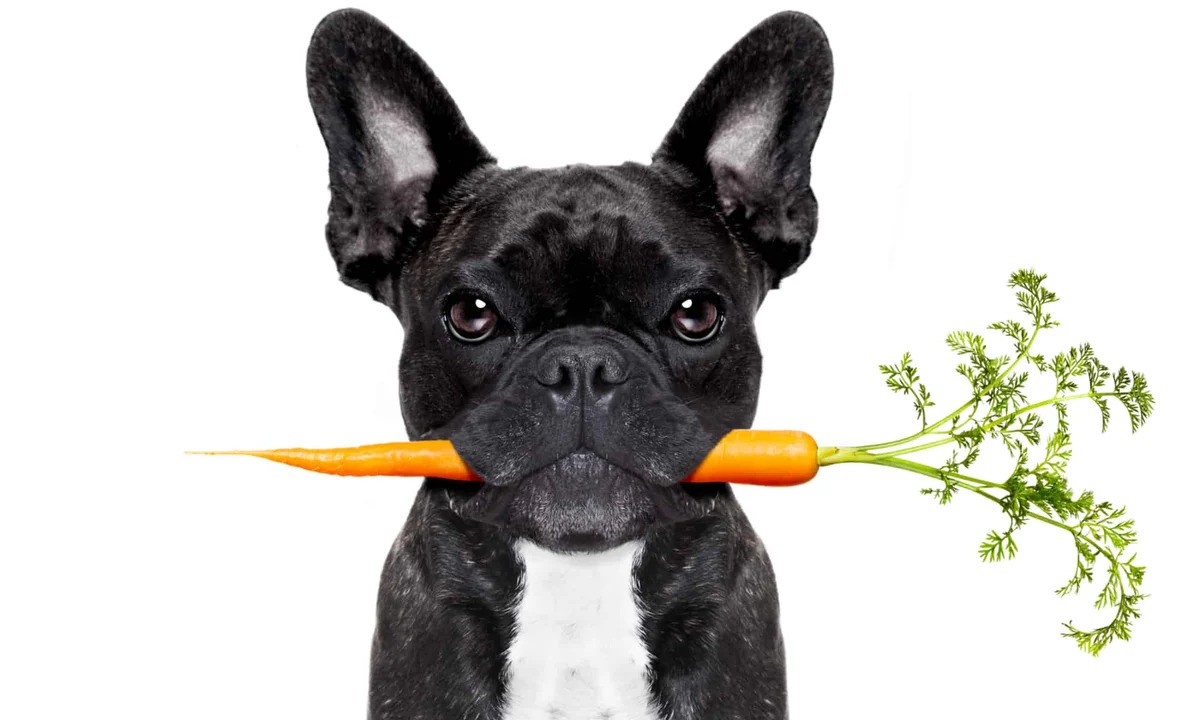Have you ever wondered, “Can Frenchies Eat Carrots?” Let’s be honest – incorporating natural fiber into your dog’s diet can be tricky. The good news is that carrots are one of those special vegetables that many dogs, including French Bulldogs, absolutely love! They’re crunchy, slightly sweet, and packed with nutrients.
If you’re looking to switch up the flavor of your French Bulldog’s healthy snack, we have the perfect solution. Read on to find out how to safely introduce these delicious orange treats into your dog’s diet!
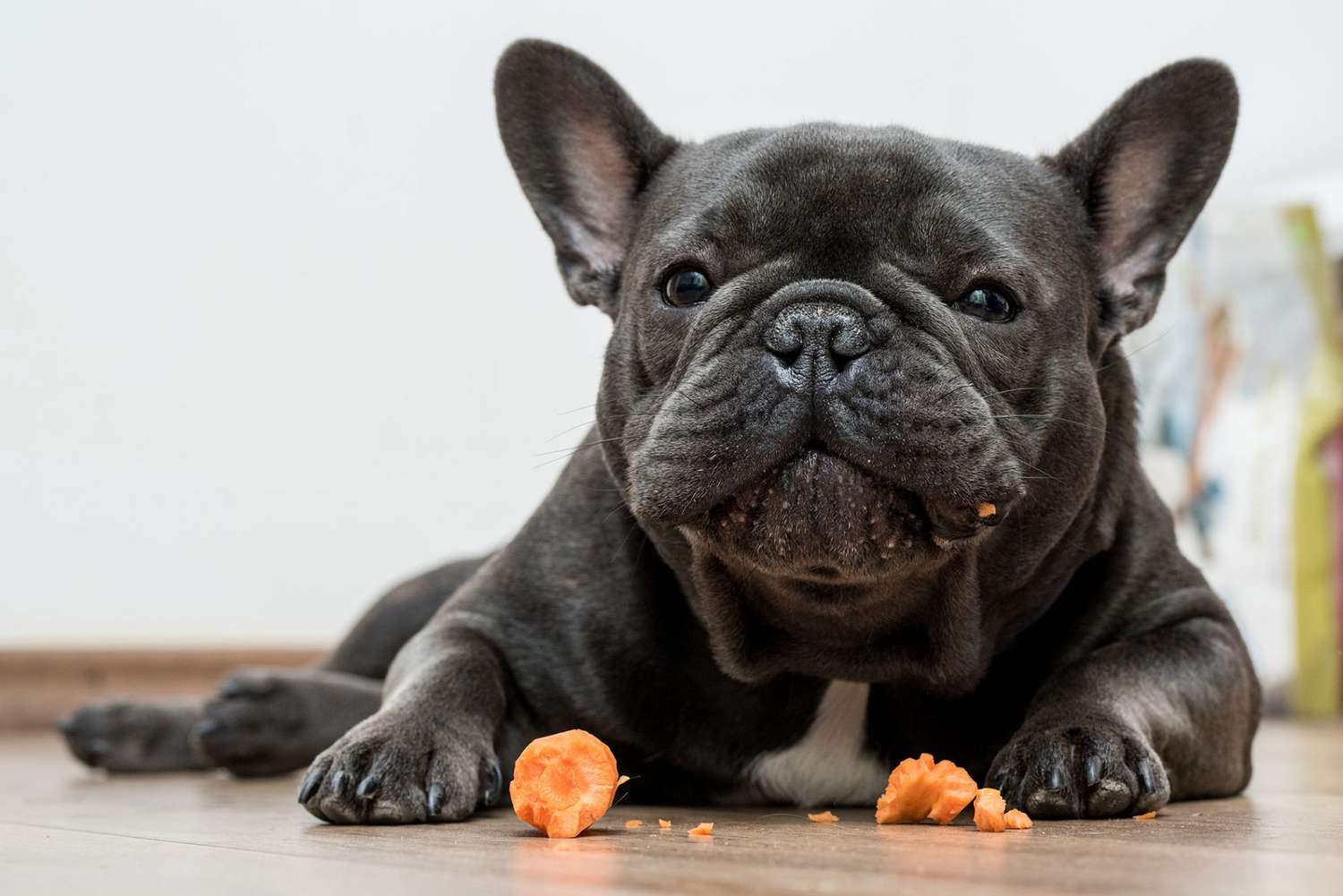
Can Frenchies Eat Carrots?
Absolutely, French Bulldogs can eat carrots! These crunchy orange veggies Iare one of the top foods our Frenchies can eat. Not only are they safe but can also be a nutritious part of your Frenchie’s diet when offered in moderation.
Carrots are low in calories, rich in fiber, and loaded with vitamins and minerals that can enhance your dog’s health. After you read the next section, you’ll likely want to add some of this vegetable to your pup’s meal tonight.
Health Benefits of Carrots for French Bulldogs
Enhanced Vision
Carrots are high in beta-carotene, which the body transforms into vitamin A. This vitamin is essential for preserving good eye health.
As French Bulldog owners, we understand that they can be susceptible to various eye problems, such as cherry eye or corneal ulcers. The vitamin A found in carrots may help promote overall eye health and potentially lessen these issues.
Oral Health
The crunchy nature of raw carrots serves as a natural toothbrush for your Frenchie. Chewing on a carrot aids in removing plaque and tartar from their teeth, leading to fresher breath and lowering the chances of dental problems. Given that French Bulldogs often face dental challenges due to their facial structure, this benefit is particularly significant.
Digestive Wellness
Did you know that carrots are a fantastic source of dietary fiber? Our little companions sometimes experience digestive troubles, and the fiber in carrots can assist in regulating bowel movements and preventing constipation. Additionally, it helps create a sense of fullness, which can be useful if you’re managing your Frenchie’s weight.
Weight Control
French Bulldogs are prone to obesity, which can result in various health complications. Carrots, being low in calories and rich in fiber, make an excellent treat choice for Frenchies on a weight control regimen. They offer a satisfying crunch without significantly increasing your dog’s caloric intake.
Immune System Enhancement
Carrots are loaded with antioxidants, such as beta-carotene and vitamin C. These nutrients can strengthen the immune system, which is especially beneficial for French Bulldogs. A robust immune system helps your Frenchie fend off infections and recover more swiftly from illnesses.
Some of the best commercial foods for French Bulldogs also incorporate carrots into their recipes, harnessing the veggie’s antioxidant properties to enhance the nutritional value of the product.
Skin and Coat Quality
The vitamins and minerals in carrots, especially vitamin A and beta-carotene, play a role in maintaining healthy skin and a glossy coat. For French Bulldogs, who may be prone to skin conditions, these nutrients can help keep their skin in good condition and their coat looking vibrant.
Potential Risks and Considerations
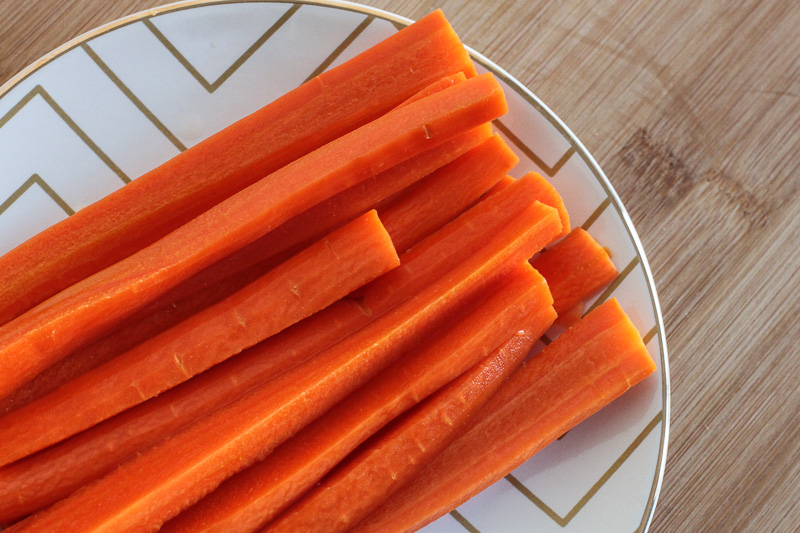
Carrots are generally a safe choice for your French Bulldog. However, our veterinarians advise being mindful of a few potential issues:
Choking Risk
Due to their flat faces and sometimes eager eating styles, French Bulldogs may choke on large food pieces. Carrots, particularly when served in big chunks, can be a choking risk. It’s essential to slice carrots into suitable sizes that match your Frenchie’s size and chewing habits.
Digestive Disturbance
Introducing new foods too rapidly can cause digestive problems in dogs. Carrots are high in fiber, which is usually beneficial but can lead to stomach upset, diarrhea, or gas if added too quickly or in excessive amounts. This is especially important for French Bulldogs, who often have sensitive stomachs.
Allergic Reactions
Though uncommon, some dogs may have allergies to carrots. Symptoms of an allergic reaction can include itching, swelling, difficulty breathing, or gastrointestinal issues. If you observe any of these signs after giving your Frenchie carrots, stop feeding them and consult your veterinarian right away.
Sugar Levels
Carrots contain natural sugars. While this typically isn’t an issue for healthy dogs, it’s something to consider if your Frenchie has diabetes or is overweight. Although the sugar content in carrots is relatively low, it’s still important to account for it in their overall diet, especially when managing weight or blood sugar levels.
Pesticide Residue
If not washed properly, carrots might have leftover pesticides that could harm your dog. Always make sure to thoroughly wash carrots before offering them to your Frenchie to eliminate any potential chemical residues.
How to Safely Feed Carrots to Your French Bulldog: A Step-by-Step Guide
Having discussed the positives, negatives, and textures of carrots, let’s move on to the enjoyable part! I’m here to guide you through incorporating these orange treats into your Frenchie’s diet, step by step:
Step 1: Choose the Right Carrots
Whenever possible, choose fresh, organic carrots to reduce the likelihood of pesticide exposure. Opt for firm, vibrant orange carrots that show no signs of spoilage or mold. Baby carrots are a convenient choice since they are already small and easy to serve, but regular carrots are equally suitable.
Step 2: Properly Clean the Carrots
Rinse the carrots thoroughly under running water, regardless of whether they are organic. Utilize a vegetable brush to clean the surface and eliminate any dirt or possible contaminants. If you’re using non-organic carrots, consider peeling them to get rid of the outer layer where pesticides are more likely to remain.
Step 3: Prepare the Carrots Appropriately
The way you prepare carrots for your French Bulldog should take into account their size, age, and chewing habits:
- For raw carrots: Chop them into small, easy-to-eat pieces. Generally, pieces roughly the size of a fingertip work well for most French Bulldogs. Steer clear of long, thin slices that might be a choking risk.
- For cooked carrots: Steam or boil the carrots until they become tender, then either mash them or cut them into small chunks. Avoid adding any seasonings, oils, or butter.
Step 4: Introduce Carrots Gradually
Begin by giving your Frenchie a tiny piece or two of carrot. This helps you assess their interest and monitor for any immediate negative reactions. If they appear to like it and show no adverse effects, you can gradually increase the quantity over time.
Step 5: Monitor Your Frenchie
Once you start giving your French Bulldog carrots, monitor them closely for the next 24-48 hours. Be on the lookout for any signs of digestive issues, such as vomiting, diarrhea, or excessive gas. Additionally, check for any allergic reactions, including itching, swelling, or trouble breathing. If you observe any worrying symptoms, discontinue the carrots and reach out to your veterinarian.
Step 6: Incorporate Carrots into Their Diet
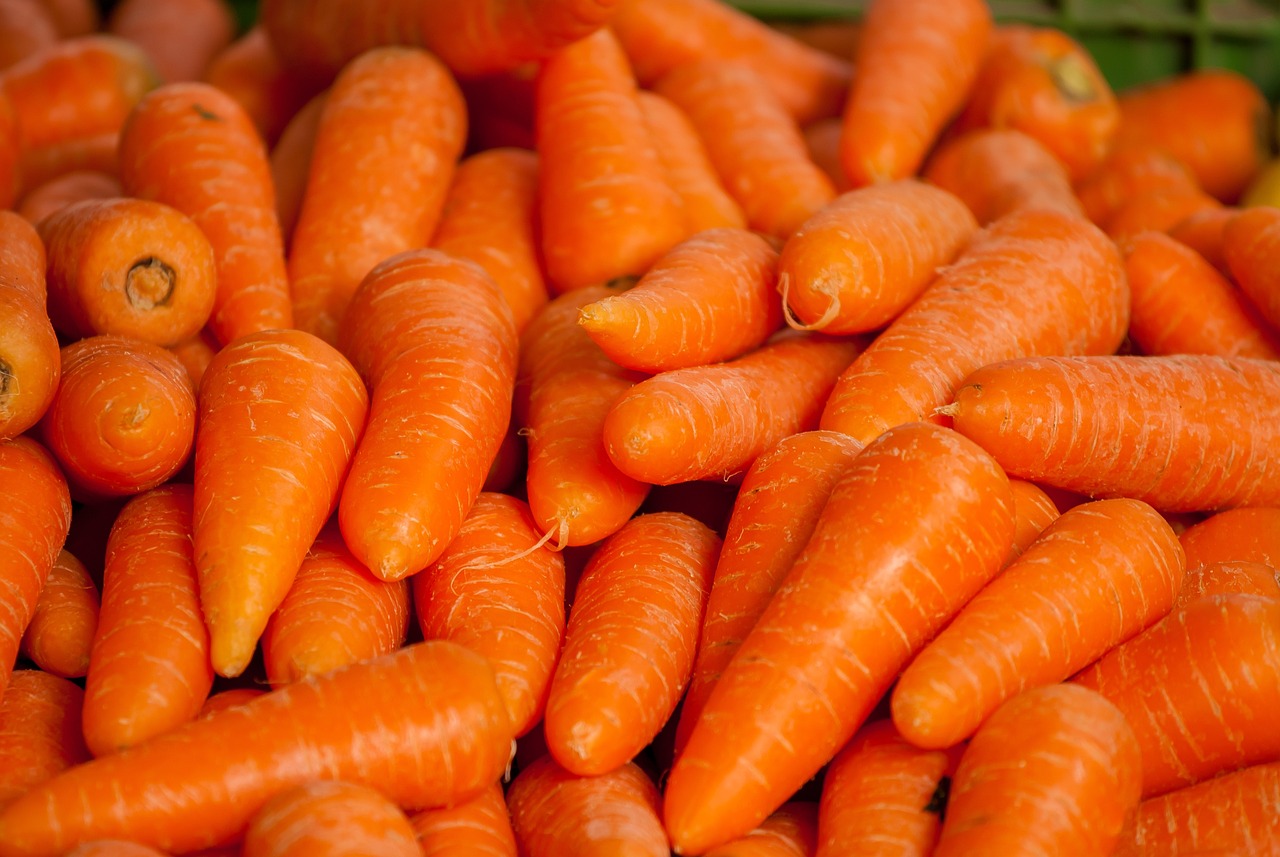
If your Frenchie handles carrots well, you can begin to add them more frequently to their meals. Here are a few suggestions:
- Offer small pieces of carrot as occasional snacks or rewards during training.
- Blend a little grated or pureed carrot into their usual food.
- Fill a Kong toy with mashed carrot and freeze it for a refreshing, long-lasting treat.
- Create homemade dog treats using carrot puree.
Step 7: Practice Portion Control
Remember that carrots should be offered as a snack rather than a substitute for meals. A helpful guideline is to limit treats, including carrots, to no more than 10% of your French Bulldog’s daily calorie consumption. For the majority of French Bulldogs, this equates to just a few small pieces of carrot each day.
Step 8: Vary the Preparation Method
At home, we often try out various carrot recipes to find out what our dogs enjoy. Once you determine that your Frenchie can handle carrots well, you can do the same! For instance:
- Steamed or boiled carrots are softer and might be easier for older dogs or those with dental problems to chew.
- Frozen carrot pieces can serve as a cool treat on warm days.
To enhance nutrition and add variety, you can mix small amounts of carrot with other dog-friendly fruits and vegetables. A tasty idea is to create a small veggie blend using carrots, green beans, and a little pumpkin. Always introduce new foods gradually to watch for any negative reactions.
Wrapping Up
Can French Bulldogs eat carrots? Definitely! When introduced correctly and offered in moderation, carrots can serve as a healthy, low-calorie snack for your Frenchie. However, like with any changes to their diet, it’s essential to introduce carrots slowly and watch for any negative reactions.
By adhering to our guidelines, you can safely incorporate carrots into your French Bulldog’s diet, possibly adding a nutritious and delightful treat to their meals. Who knows? Your Frenchie might just find a new favorite snack!

As an experienced dog foster and canine advocate, I have a special place in my heart for French Bulldogs. Their charming personalities and unique needs sparked my interest, leading me to specialize in Frenchie care. I’ve fostered over 200 Frenchies over the year, gaining deep insights into their dietary requirements and health concerns. This expertise drives my contributions to bestfoodforfrenchbulldog.dog, where I share practical advice on nutrition, care, and enrichment for these lovable flat-faced pups.
My articles aim to educate Frenchie owners on optimal feeding practices and health management. When not writing or fostering, I’m often cuddling with my own Frenchie, Biscuit, my inspiration for helping others care for this delightful breed.
